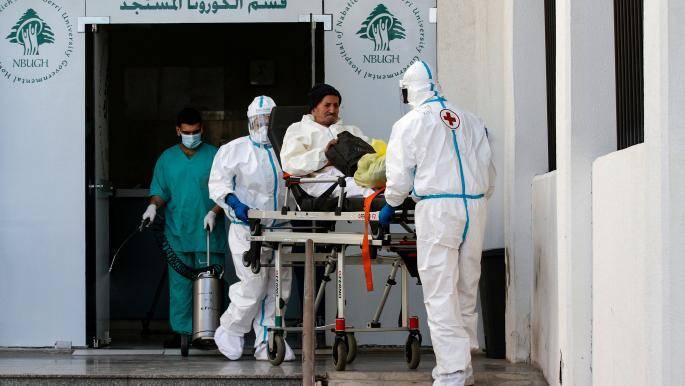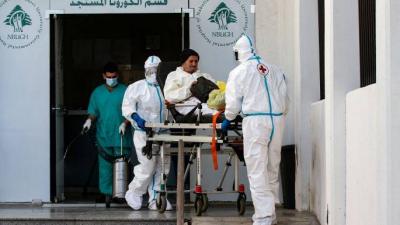Samar Fadouil wrote in the "Republic" newspaper: "In a country of favoritism and mediations, it is not surprising that officials are prioritized over the public, especially as the current talk is serious and constitutes rich material for public opinion, which demands a serious investigation into the 'disappearance' of nearly 50% of the vaccines that arrived in Lebanon. Who were they given to?
She added that the Central Inspection Bureau has recently accelerated its investigations and begun to uncover the facts from the source, that is, from the Ministry of Health, particularly after the tweet published by the World Bank representative in Lebanon, Saroj Kumar Jha, who confirmed that 'the World Bank may freeze its funding for vaccine support in Lebanon,' urging 'everyone, regardless of your position, to register through the platform and wait for their turn.'
The essence of the problem, according to reliable sources, lies in the data that reaches the Ministry of Health, which includes the names of vaccine applicants in the prioritized vaccination sectors like the elderly. It points out that some syndicates manipulate vaccination priorities, marking 'high risk' next to the names of those who do not deserve it. This flaw can also occur, especially if someone registers on the platform claiming to have heart disease, diabetes, or another chronic illness, without being questioned or asked to present documentation to confirm that. Thus, responsibility for this matter is collective and cannot be exclusively attributed to one party.
The sources also noted a discrepancy in the number of elderly people from one area to another, with the number of citizens over eighty years old applying for the vaccine in Beirut and Mount Lebanon exceeding expectations, which is significant compared to other regions and governorates that are vaccinating citizens under seventy, under the pretext of not having large numbers of elderly individuals.
The same sources confirmed to the "Republic" that the number of political officials who received the vaccine does not stop at the names that were published, as there are many who were vaccinated 'in secret' away from the media. Additionally, certain political figures managed to receive the vaccine along with their close ones, avoiding any public scrutiny that mobile phone usage might provoke, or any potential scandal. However, the lost vaccines were not all given to political officials and their close ones; the same sources indicated that vaccines are not distributed fairly to hospitals, raising significant questions about the allocations given to 'Al-Rasoul Al-Azam Hospital,' and questioning the role of 'Hezbollah's Health Authority' in providing vaccines to individuals who are not registered on the platform.
Another scandal relates to the unfair distribution of vaccines, as some hospitals receive lists of names that exceed the number of vaccines allocated to them, causing embarrassment for them among citizens who show up according to the appointment specified in the text message sent from the platform. In this context, the "Republic" learned that some hospitals would soon raise their voices to clarify the circumstances surrounding the ongoing violations.
Conversely, some other hospitals receive surplus vaccines compared to the number of registered individuals in the lists provided to them. For example, one hospital received 6 samples of the vaccine (each sample containing 11 doses) to vaccinate 62 people listed, and mathematically, this hospital would have 4 unregistered doses remaining. Here, options vary for hospitals—some give them to their medical staff, some allocate them to individuals on their waiting lists, while others give them to family or friends.
There are also ongoing questions about the reasons preventing the Ministry of Health from regulating the distribution mechanism and publishing names on a daily schedule, similar to the tables that reflect COVID-19 infection rates and their distribution across regions. Therefore, this would eliminate many doubts that some circulate, especially concerning the figures of vaccines that were not recorded through the platform. The Ministry of Health should be aware of this by linking the warehouse where the vaccines are stored to the platform, thus making the control mechanism over the numbers clear and documented, recording the amount that leaves the ministry’s warehouses daily for distribution to hospitals, and informing public opinion about it, thereby ensuring the ministry's transparency and emphasizing that everything should be clear to citizens.




